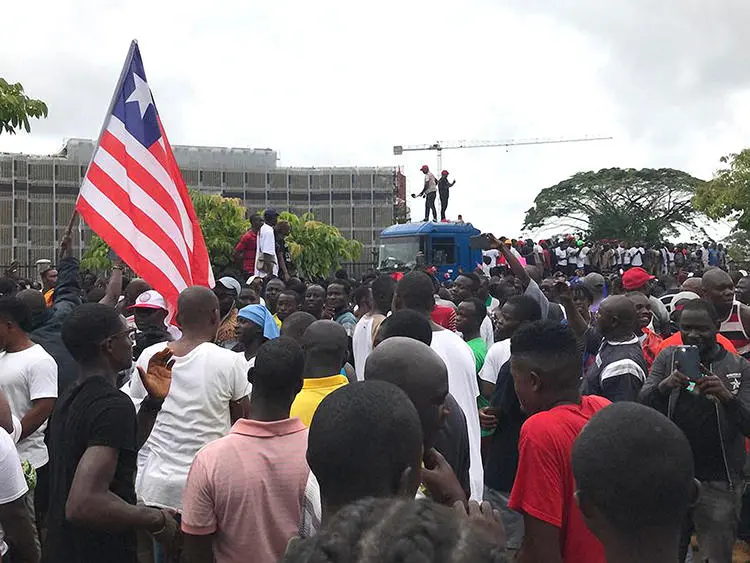Abidjan, June 7, 2019–Starting this morning, social media services including Twitter, Facebook, Instagram, Snapchat, and WhatsApp were disrupted throughout Liberia, according to data from the internet advocacy group NetBlocks and local journalists who spoke with the Committee to Protect Journalists. NetBlocks also reported disruptions to the Associated Press website and Google’s Gmail and News services on Liberia’s leading wireless internet provider, Lonestar.
Users have had only intermittent access to the social networks amid large protests today in Monrovia, the capital, against alleged corruption in the administration of President George Weah, according to news reports.
It is not clear who is responsible for ordering the blocks. CPJ’s calls and WhatsApp messages today to Liberian Minister of Information Lenn Eugene Nagbe went unanswered.
“President George Weah and his government must ensure that social media and internet are restored and that journalists have the ability to work,” CPJ Program Director Carlos Martinez de la Serna said from New York. “The Liberian public’s access to information should be prioritized, and this means maintaining an uncensored internet.”
Journalist using virtual private network (VPN) software to evade the censorship told CPJ via messenger apps that they noticed service disruptions beginning at 7:00 a.m.
“It briefly hindered our team on the field,” said Bai Best, managing director of the privately owned Daily Observer newspaper, who said that his reporters are now using VPNs for their reporting and to post on social media.
Jefferson Krua, co-founder of the Bush Chicken news website, and Rodney Sieh, editor-in-chief and publisher of the privately owned Front Page Africa newspaper, both told CPJ that the blocks slowed their ability to report on the protests today, but that their news teams were now using VPNs.
Fidel Saydee, co-host of the Henry Costa Show, which airs on the Roots 102.7 FM radio station, told CPJ that the show’s website was offline earlier today, but is now functioning. CPJ could not independently confirm that the disruption was connected to the larger interruption. In April, Roots FM was sued for defamation by Nathaniel McGill, Liberia’s minister of state for presidential affairs, as CPJ reported at the time.
